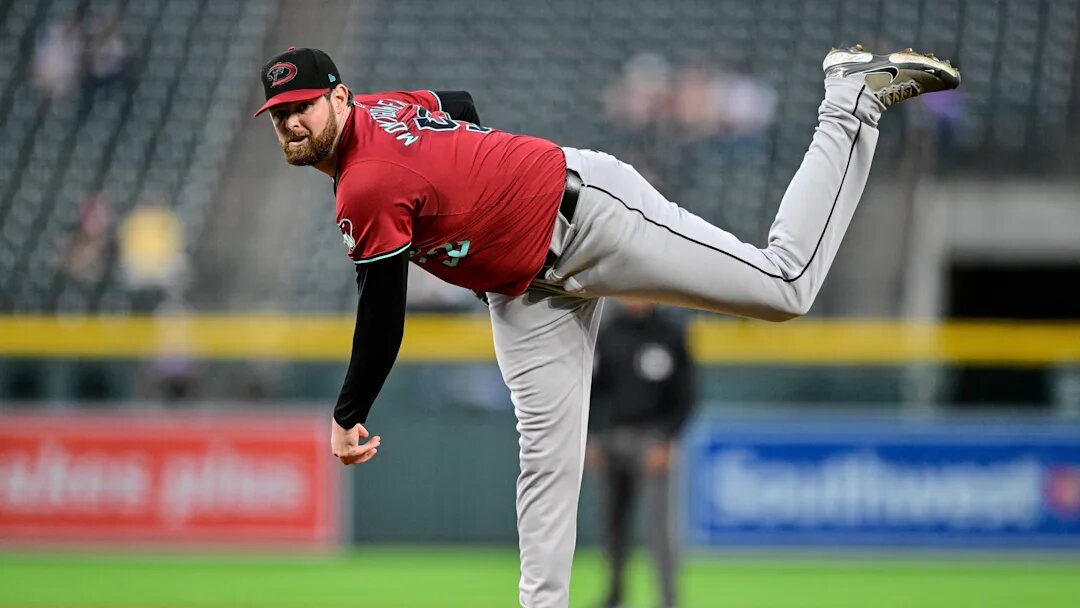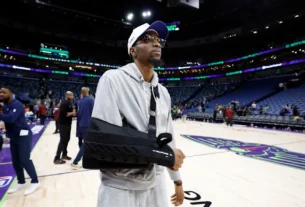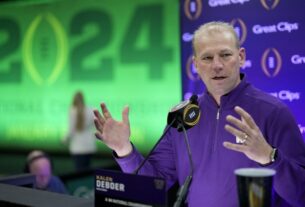While the Atlanta Braves have undoubtedly spent money to strengthen their squad (though not yet this offseason), one of the ways the Braves’ front office has earned an advantage in recent years is by making unconventional/unpopular decisions in their favor. One need only look back to last offseason, when they addressed their rotation needs by moving Reynaldo Lopez from reliever to starter and then trading for Chris Sale, who went on to win the Cy Young.
With Max Fried now a Yankee, having another strong starter would be beneficial heading into 2025. Sure, Atlanta has a lot of young pitchers that they could give a chance, but none of them are sure things, and the Braves are looking to win a World Series here. As a result, the Braves have been linked to a number of starting pitchers this offseason, but have yet to make a deal.
Jordan Montgomery of the Diamondbacks has started to find traction. Montgomery had a poor 2024 season, and when Arizona’s owner publicly humiliated him, the vast majority of onlookers believe Arizona must move him now, with the Braves being a possible destination.
What such a deal would have to look like in order to make sense for the Braves is a little more difficult to determine.
Examining what a Braves-Jordan Montgomery trade could look like
First, we need to understand Montgomery’s current value. He was one of the more consistent lefty starters in baseball from 2021 to 2023 including in the postseason which is why he tried so hard (albeit unsuccessfully) to get a big payday last offseason. However, he also was incredibly terrible with Arizona last season with a 6.23 ERA with alarming walk and strikeout trends and Montgomery is owed $22.5 million next season when he exercised his player option.
The Diamondbacks have now attempted to save face with Montgomery by stating that they believe he will improve next season, but the damage has been done. Everyone knows Arizona wants to move Montgomery, but they have virtually little power now that their owner has publicly blasted him.
One school of thinking advocates a “take on the ‘bad’ contract” approach to a deal. If Atlanta was willing to absorb $15 million of Montgomery’s deal, Arizona might simply accept it at this point. However, the Braves’ model for the Sale deal may be more plausible and fruitful.
Montgomery lacks Sale’s upside and pedigree, so giving up a name like Vaughn Grissom should be unnecessary here. The Diamondbacks would get a pitching prospect in Reyes, who has some decent raw stuff but is a long way away, has some command issues, and would most likely profile as a reliever in the majors. However, the talent is sufficient for Arizona to market the transfer as a lottery ticket that will benefit them in the future.
In exchange, the Braves would acquire Montgomery and only be on the hook for $11.5 million in 2025. For a guy that might easily rebound next season and be a strong to very excellent piece of the rotation, it is a gamble Atlanta should at least give a go. Despite the financial penalty, the Braves might make more roster acquisitions this offseason without exceeding the luxury tax threshold. The luxury tax isn’t a major problem for the Braves, but it might be beneficial here.
Finally, the decision to go with Montgomery is determined by how Atlanta evaluates him in the future. While Montgomery has never been a big swing and miss guy, which is a little concerning, it would still be a huge win if he could resemble the player he was before last season. If not, risk for the Braves in this deal (or one like it) is pretty minimal and would still allow for a pivot to internal options like AJ Smith-Shawver, Hurston Waldrep, or even Ian Anderson if need be.



